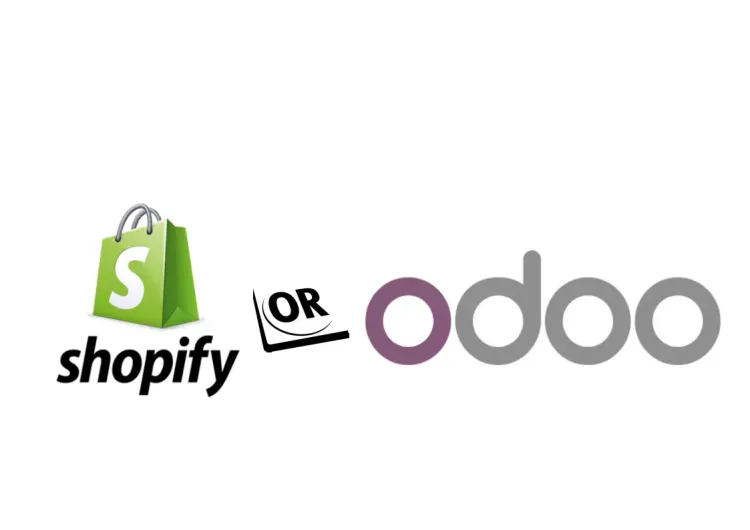Lockdowns across the globe have shifted consumer behaviour. People are buying online whenever they can. In a study conducted by Global Web Index, 40% of respondents indicated that they expect to buy more online for home delivery, even after the pandemic. In addition 32% of respondents also expect to spend less time inside physical stores.
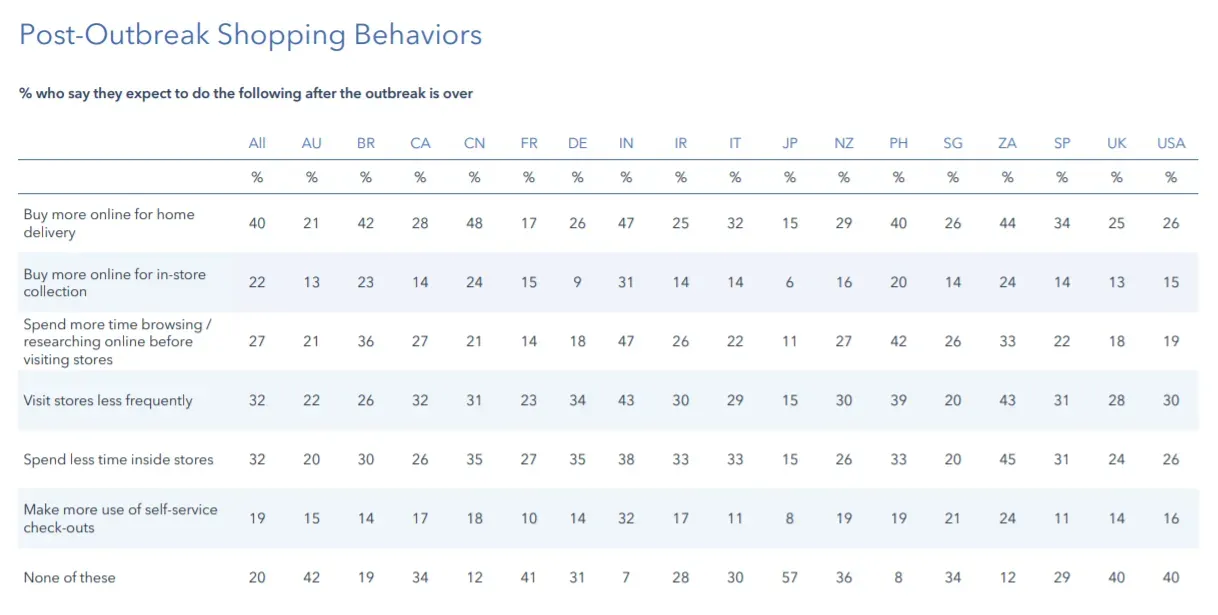
Source: Global Web Index. Coronavirus Research | April 2020 | Multi-market research wave 3 (Available here)
Indeed automating your sales processes and selling online will be advantageous to your business - in
addition not relying on in-person visits to your brick-and-mortar shop, you will benefit from the wider
geographic reach, the cost savings from reducing manual work, and the ability to generate detailed
customer insights which can be used to optimise your selling strategy. However, the choice of eCommerce
platform is something that needs to be thought of carefully. There are many factors to consider - Who
are your customers? Are you selling B2B or B2C? Who in your team will be managing the ecommerce platform?
What skills do your team members have, and will they need training and support? Do you have an in-house
team of software developers or will you outsource the work? How much customisation is needed for your
store? What is your budget?
Shopify is one of the most widely used eCommerce platforms - it offers an excellent user experience and allows you to quickly set up an online store with a ready-made theme. If you already have a store built on Shopify, we can help you integrate your Shopify store with Odoo to help facilitate all the back-office business processes, such as inventory management and accounting.
However, if you are just about to set up your online store and are thinking of which platform to use, it
is worth noting that Odoo eCommerce has some advantages over Shopify, depending on your business requirements.
Retail or Wholesale?
Your business might sell retail (or B2C), wholesale (or B2B), or a combination of both. Products sold at
wholesale usually have lower prices than retail because orders are placed in large volumes. In addition,
since wholesale customers are usually businesses instead of individuals, you may need to collect additional
information, such as the VAT number of the business you are selling to.
If you would like to sell wholesale, it would be good to note that Shopify is, by default, designed for
retail or B2C sales, meaning each product will have one price for all customers. There is the option to
subscribe to Shopify Plus, which offers wholesale functionalities (e.g., special pricing for specific customer
groups and/or volume based prices.) However the pricing for Shopify Plus starts at a hefty $2000 per month
subscription fee!
On the other hand, Odoo eCommerce already has retail and wholesale features included in its basic set of functionalities. For example, let’s say we have the following online store with each product originally priced at £8.00
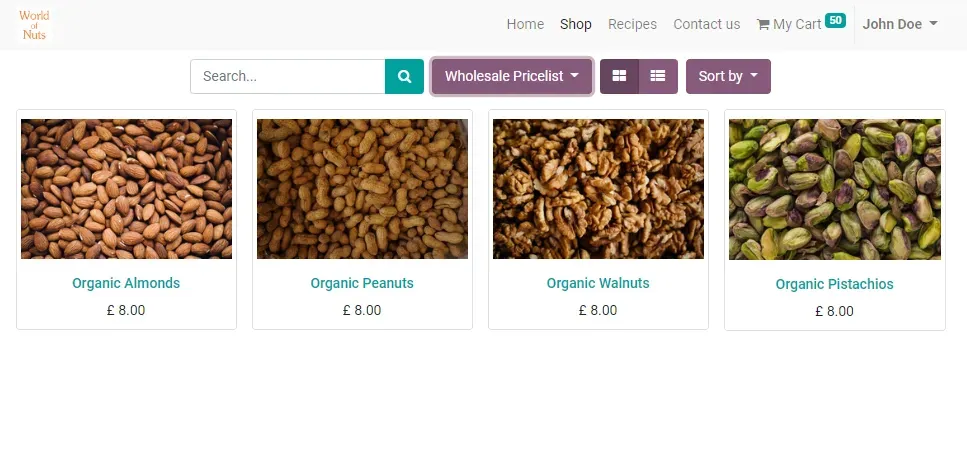
Odoo lets you set pricing rules based on minimum quantities ordered for each product.
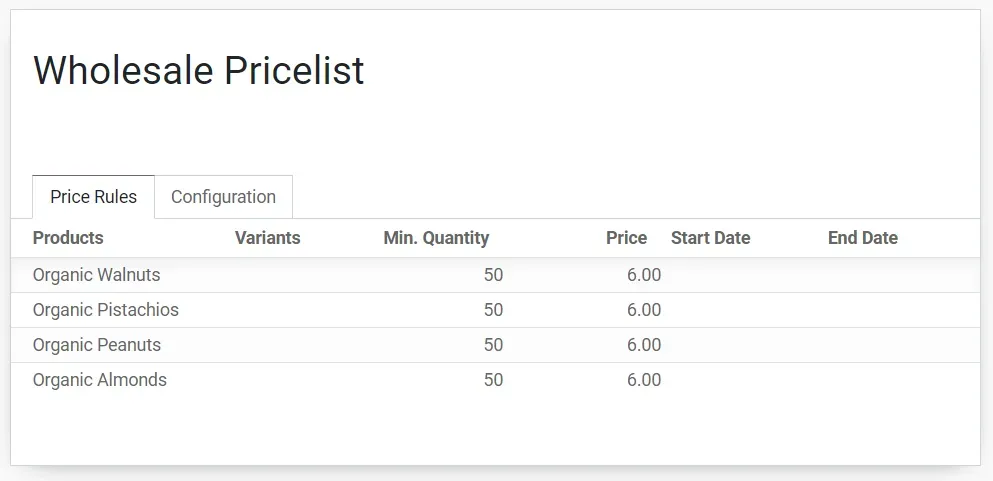
After giving a customer access to a specific pricelist, when this particular customer orders from your online store and meets the minimum quantity for a product, the price will then adjust to the lower price. Organic Almonds, originally priced at £8, is now discounted to £6 because the customer is ordering 50 units.
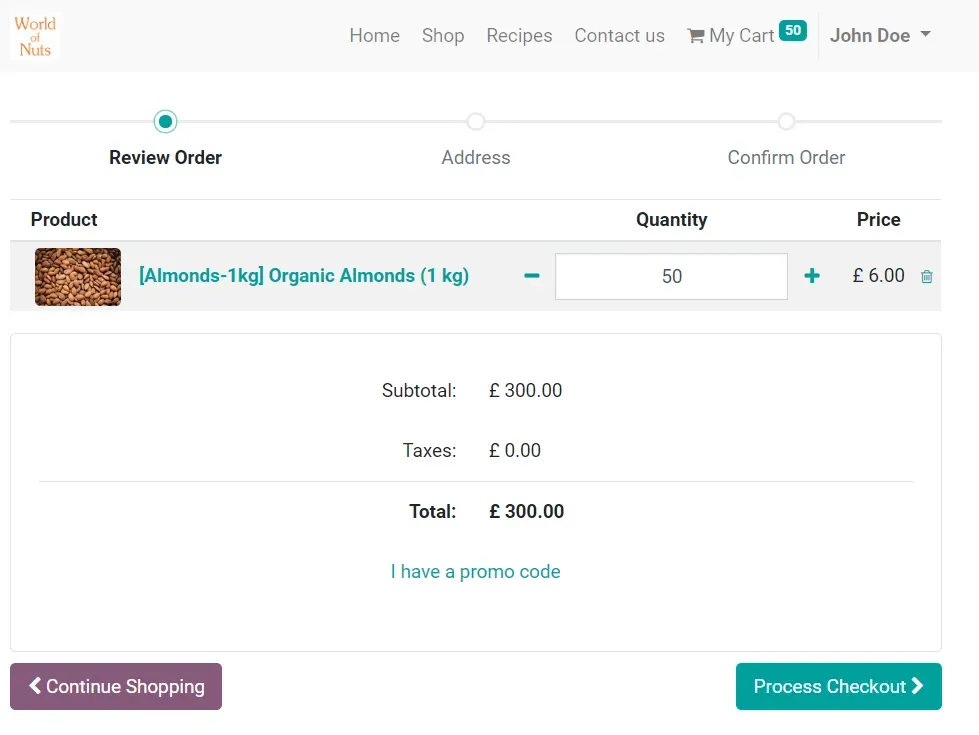
Degree of customisation
Shopify allows you to customise your store by selecting a theme and then customizing the theme’s code.
However there are limits to what sections of the store you can customise. For example, if you are under
their Basic, Shopify, or Advanced Plan (whose subscription fees range from $29 to $299 per month) you will
not be able to customise the checkout and payment sections of the store, except for logos and images. This
will be a challenging constraint if you want to add specific features to the checkout process, such as
additional handling fees or specific shipping rules. One workaround is to use third-party apps that integrate
with Shopify; however you will then be limited to the features, options, and rules that these apps offer.
The only way to have full control over the code of your store is to upgrade to Shopify Plus and start
paying the $2000 per month subscription fee.
On the other hand, Odoo, which is open source, gives you the option to host your own instance of the platform
either on your own server or on the Odoo.sh Cloud Platform, and from there you have the freedom to make
changes to the code in the backend (and this is where we can help).
Learn More
Control over your data
Shopify has a fixed set of fields that are collected from each customer (e.g. their contact details) and
their orders (e.g. item, quantity, order fulfillment status). The information collected, if available in
the API of Shopify, can then be pushed to other applications such as your CRM or accounting software.
However, there will be some limitations and challenges if you need to create new fields that are not in
Shopify’s standard API. For example, we mentioned that Shopify treats customers as individuals, not companies,
and does not collect VAT numbers by default. If you need to collect your customer’s VAT number, you can
customise the Shopify theme, or use a third-party app, in order to request for this information upon checkout.
However, it will be difficult to push the VAT numbers into other apps (e.g. your accounting software, where
your customers’ VAT numbers might be needed for compliance purposes, or the CRM). This is because the customer’s
VAT number is not included in Shopify’s standard API.
Odoo offers a clear advantage in this aspect because first and foremost, Odoo already offers the modules for
the other business functions (such as CRM, inventory, and accounting), and by design, Odoo syncs all the
information (e.g. customers, sale orders, inventory levels) across these modules. Moreover, because Odoo is
open source, there is the flexibility to create new fields in the database, have them sync across modules,
as well as to pull and push information into other apps that have an API.
(It is worth noting that Odoo can collect your customers’s VAT numbers.)
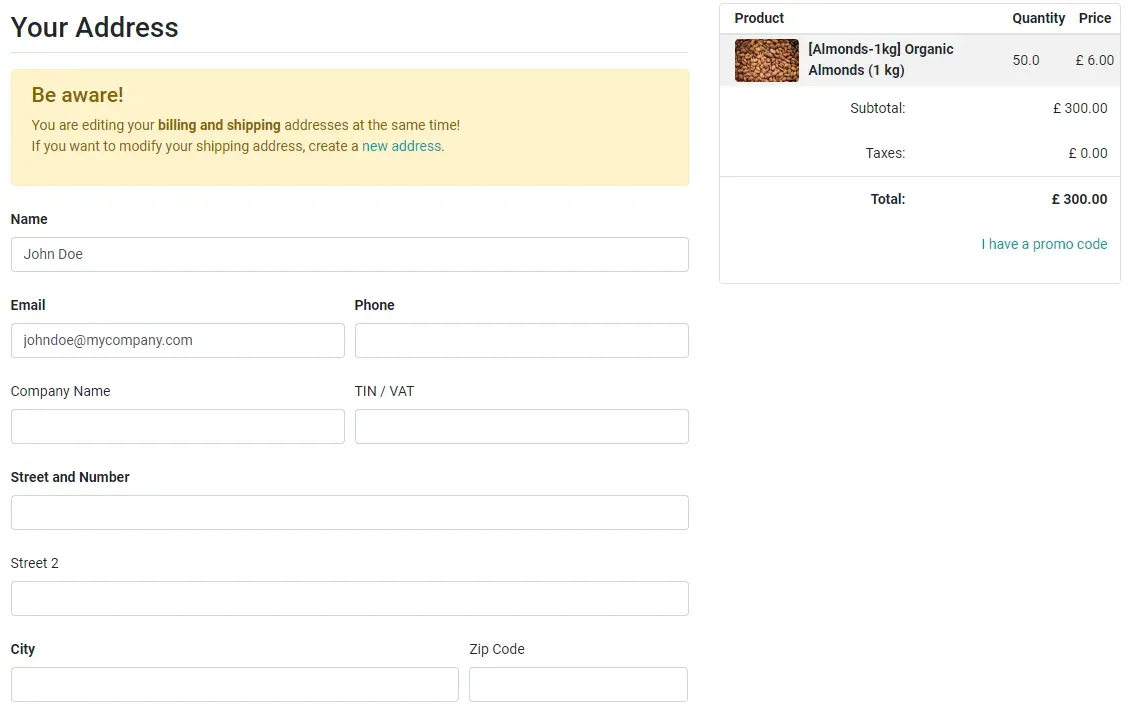
Conclusion
Which eCommerce platform is right for you? The answer depends on the specific needs of your business.
However, if you would like the ability to sell your products to both wholesale and retail customers, have the flexibility to
customise all sections of your online store, and seamlessly integrate your online store data with other business
applications, then we highly recommend Odoo eCommerce, alongside the other Odoo applications that can facilitate
your back-office business processes.
We can help you building a fully customized Odoo website.
Prefer Shopify? We can help you integrate your Shopify store with Odoo if you need an ERP to facilitate inventory
management, accounting, manufacturing, and your other business functions.
Contact us today, and we can help you determine how Odoo can help automate your selling activities.
